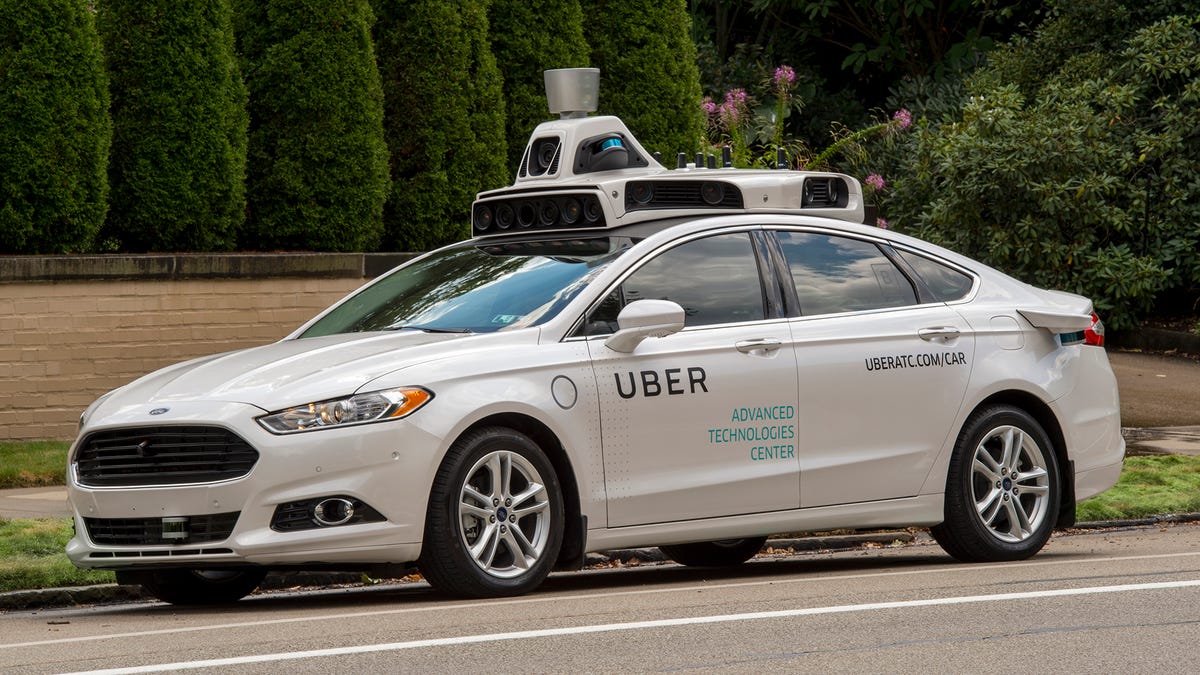Why self-driving cars won't put all Uber drivers out of a job
The ride-hailing service sees future cities full of shared autonomous vehicles, but that doesn't mean today's drivers are about to hit a brick wall.
At first glance, Uber has what seem like dramatically opposing goals: in the short term, to get more people driving for the company -- and in the long term, to replace human drivers with robots.
But Uber's Guy Levin, who spoke Thursday at an industry event in London, said that self-driving cars won't completely replace people.
"We don't think there'll be mass ownership of individual self-driving cars," said Levin, a senior analyst in Uber's public policy group for Europe. Instead, people in cities will have shared access to fleets of autonomous vehicles. That leaves room for drivers to provide transportation outside urban areas.
Interest and research in self-driving cars continues to climb in the auto and tech industries. Automakers from Toyota to Ford to Volvo all have projects under way. Tech giants are already counting themselves in as well, including Google, Intel, Tesla Motors and, of course, ride-hailing service Uber.
Levin pointed out that you don't need to drive a car to work for Uber.
"In a world in which Uber has self-driving fleets in cities, they'll be much bigger than they are today," he said. "There'll be a huge number of ancillary things that need to be done, just maintaining fleets of huge numbers of vehicles."
And if required, "there'll still be some cases where you want a human driver."
Levin discussed Uber's goal of transforming cities that have for the last century been built around cars.
"It's easy to demonize the car," said Levin, "but the problem isn't the car. The problem is how it's used." He pointed out that cars spend most of their time -- as much as 95 percent off it -- sitting idly, taking up vast swaths of space in cities and towns. Shared self-driving cars, controlled from a central point, could spend all their time on the move, cutting down on the need for parking spaces and reducing traffic.
It's not just our public spaces that could be transformed. Each year worldwide about "1.3 million people die on roads, mostly due to driver error," said Levin. "Self-driving cars will radically reduce that. That's a big prize to be won."
"It's not going to happen overnight," he acknowledged. "We're a very, very long way off replacing all personal car ownership... [but] in the short term, helping get more people into shared cars and reducing the absurd amount of space in cities dedicated to parking are good things to aim towards."


